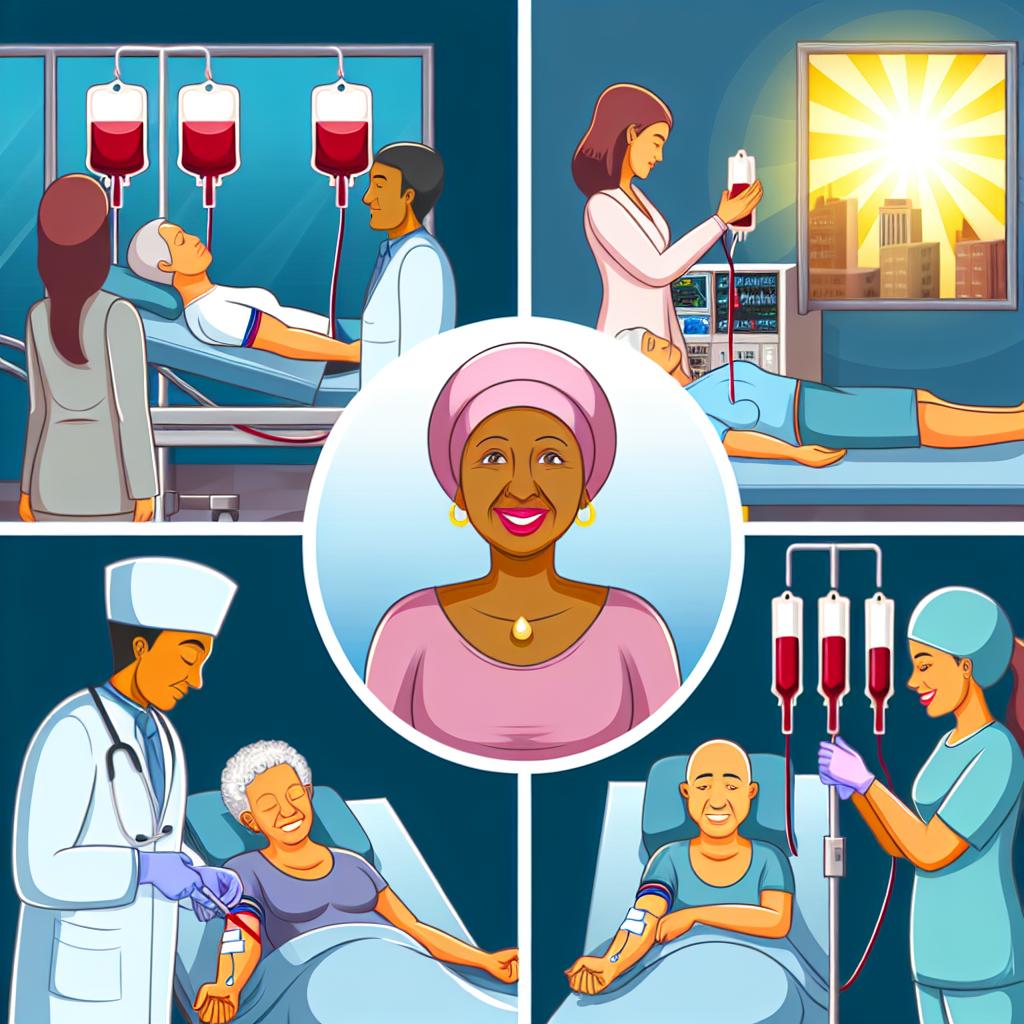Understanding Blood Donation and Its Importance
Blood donation is an essential component of modern healthcare, providing the necessary resources for a wide array of medical treatments. Its significance is particularly pronounced in the context of cancer care. As cancer treatments can adversely affect patients’ blood components, maintaining an adequate supply of blood becomes crucial for managing their health. This article delves into the various aspects of blood donation, its critical importance in cancer care, and how the collective efforts of donors and organizations make a significant impact.
The Necessity of Blood Components
Cancer treatments, such as chemotherapy and radiation, can have myriad effects on a patient’s blood. Among the various components of blood, red blood cells, platelets, and plasma are especially vital. They each play different roles in ensuring the body functions optimally, especially during the challenging periods of cancer treatment.
Red blood cells are tasked with the transportation of oxygen throughout the body. Anemia, a common side effect of chemotherapy, results in a decrease in the number of red blood cells, leading to fatigue and reduced oxygenation of tissues. Transfusions of red blood cells are thus critical to counteract this side effect, boosting patients’ oxygen-carrying capacity and improving their quality of life.
Platelets are cell fragments pivotal in maintaining hemostasis, preventing excessive bleeding by aiding in blood clot formation. Cancer treatments can impair bone marrow function, leading to thrombocytopenia, a condition characterized by a low platelet count. This increases the risk of bleeding complications, necessitating platelet transfusions to maintain hemostatic balance and safeguard patient health.
Plasma and Coagulation Factors
Plasma, the fluid component of blood, is rich in proteins essential for blood clotting and immunity. In the context of cancer treatment, patients might experience disturbances in coagulation processes due to the adverse effects of their therapies. Plasma transfusions thus become necessary to provide the coagulation factors that facilitate normal blood clotting. Furthermore, plasma contains important proteins such as albumin and immunoglobulins that support the immune system’s functionality, pivotal for cancer patients whose immune systems might be compromised.
How Blood Donations Support Cancer Patients
With the high demand for blood components in oncology departments, blood donations play a critical role in ensuring a consistent supply. The continuous need for blood transfusions among cancer patients underscores the importance of a reliable donor base. Each donation contributes directly to a patient’s treatment journey, enabling them to continue with their prescribed therapies and, in many cases, significantly enhancing their chances of recovery and prolonged life.
Collaborative Efforts and Donation Drives
Numerous organizations worldwide actively collaborate to encourage blood donation, addressing the high demand within cancer treatments. Campaigns designed to educate the public about the importance and impact of blood donations are essential. These initiatives aim to inspire widespread participation from eligible donors, ensuring a robust supply of the necessary blood components. Donation drives, often organized in corporate, educational, and community settings, serve not only to collect blood but also to raise awareness about the perpetual need for donations. These events highlight the critical nature of public participation in healthcare, fostering a sense of responsibility and solidarity among community members.
The Impact of Blood Donation
The act of donating blood extends beyond individual assistance to cancer patients—it fortifies the healthcare infrastructure’s overall ability to respond to cancer. Hospitals and treatment centers depend largely on community altruism and generosity to meet their blood supply needs. Regular donors are key to sustaining these stocks, providing a dependable resource that healthcare systems can rely on to manage emergencies and routine treatments alike.
Individual donors make considerable contributions, with each donation potentially saving or improving multiple lives. For those who are eligible, becoming a regular donor can significantly bolster healthcare capacities in dealing with not only cancer but also other conditions requiring blood transfusions. Health organizations such as the American Red Cross in the United States or the NHS Blood and Transplant in the UK offer comprehensive resources and guidance for those interested in becoming regular donors, ensuring that the donation process is safe, efficient, and as impactful as possible.
Maintaining a healthy and steady stream of blood donations encompasses benefits that transcend individual treatment cases. It equips healthcare providers with the means to treat a broader range of conditions, enhances preparedness for emergencies, and supports ongoing medical research into blood-related diseases. The contribution of blood donors is thus a testament to the power of collective action in healthcare, evidencing how individuals can tangibly influence public health outcomes.
In summary, blood donation is indispensable, particularly in the context of cancer treatment. Donors provide a critical lifeline, enabling the effective and sustained delivery of life-saving procedures and treatments. By donating blood, individuals actively participate in the healthcare continuum, directly affecting the lives of patients who rely on these vital components to endure their treatment regimens and improving their prognoses. The act of blood donation is a profound expression of communal support and compassion, pivotal in the ongoing battle against cancer and integral to achieving better health outcomes globally.
